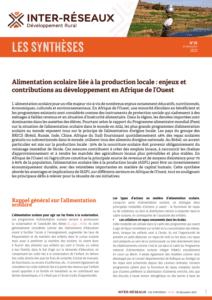Increased adoption of irrigation is often considered critical for agricultural transformation in countries in Africa south of the Sahara such as Nigeria. Information is, however, still limited regarding how irrigation potential and comparative advantage may depend on endowments of various production factors, what are the feasible options for irrigation expansion in tropical regions like Nigeria, and what may be the challenges in favorable areas where current irrigation appears relatively productive but substantial room for improvement still exists. Addressing these questions is important because effectiveness of policies promoting irrigation expansion may depend partly on the answers to these questions. Addressing these questions in a rigorous way is challenging. In this paper, we briefly explore these three perspectives that can be useful in the future assessment of irrigation potential in Nigeria: (1) factor endowments, (2) challenges inherent in the tropics, and (3) experiences in a favorable area within Nigeria. In Nigeria, population (and to some extent agricultural population) is growing fast, the water to labor ratio is declining quickly, and expansion potential for agricultural areas is increasingly exhausted. Nigeria is becoming relatively water stressed. The share of irrigated areas in Nigeria may exceed that of more land-abundant countries like the United States or Australia in the long term but may not reach Asian levels. A successful expansion of irrigation, if it occurs, may be labor based in the short to medium term. Agricultural research and development (R&D) may critically affect general water productivity in farming, which determines whether water is used more intensively in the agricultural sector or diverted to the nonagricultural sector. Second, irrigation expansion in Nigeria is likely to face constraints due to the country’s tropical environment. Expansion is affected by the climate, agricultural R&D efforts, growth of commercial demand, and the success of vertical coordination such as plantations. In the short to medium term, rice may have the greatest irrigation potential for achieving poverty reduction and food security improvement if complemented by, among other things, sufficient investments in rice R&D. Achieving these goals through irrigation of other crops will require more complicated processes. Third, a survey of the Bakolori irrigation scheme in northwestern Nigeria shows that it is possible in parts of Nigeria to realize high yields that are comparable to more advanced countries’. However, even there, substantial yield gaps still exist, possibly associated with insufficient domestic rice R&D in Nigeria. This is consistent with experiences in other countries.







